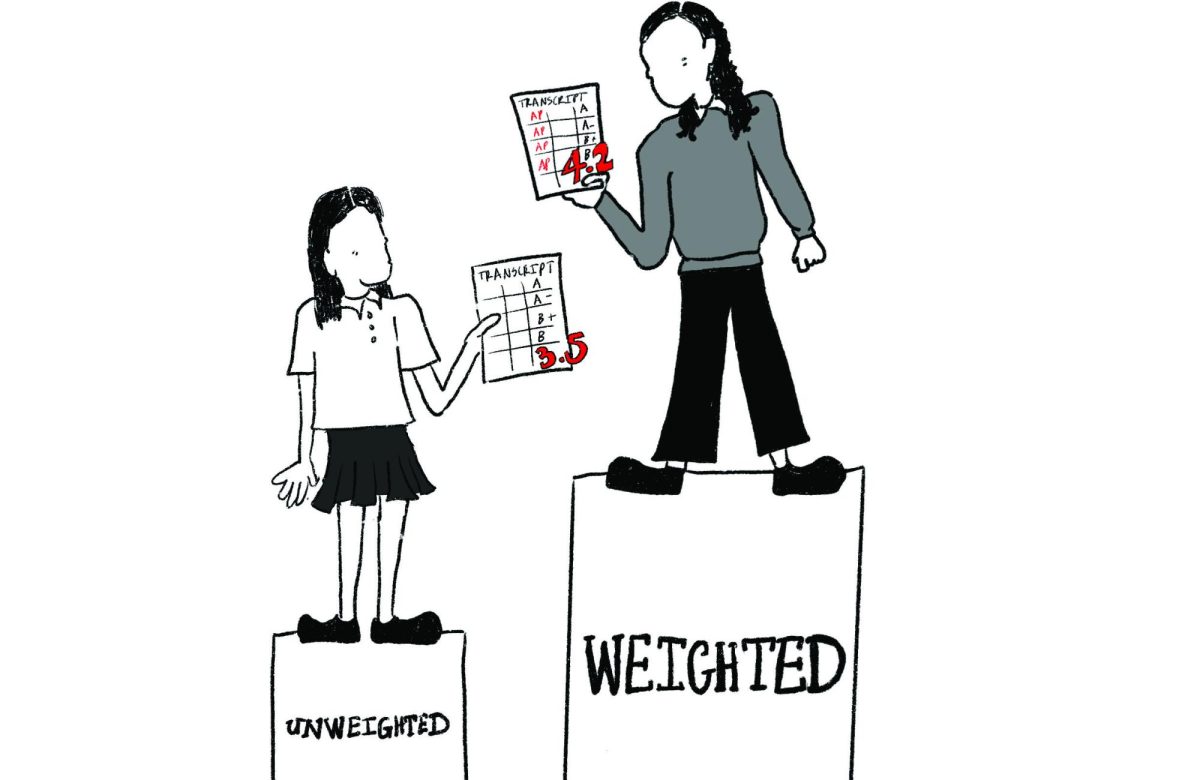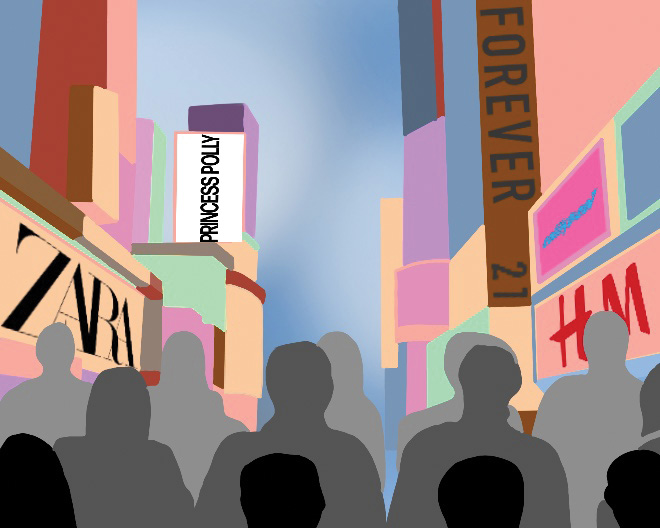STATES IN THE 2024 ELECTION
As political division between both Democrats and Republicans has increased nationally, extremist views of state-specific politics has fueled criticism of politicians in light of the 2024 presidential election.
With nearly 50% of its citizens identifying as Democratic and 24% identifying as Republican, California’s political landscape is predominantly liberal. Despite a large presence of Republican voters in the Central Valley and Northern California, California’s densely populated cities lean left, which allows the state to consistently vote Democratic in presidential elections. With California accounting for nearly 30% of homelessness in America according to US News, the state has come to represent the impacts of rampant struggles with cost of living and wealth inequality. As a result, these issues have been weaponized against the state’s Democratic leadership and have been used to represent the perceived failings of the Democratic party in general, with an LA Times survey reporting that 67% of Republicans nationwide said they believe California has had a negative impact on America as a whole.
As a Bay Area native and former Attorney General of California, Vice President Kamala Harris has come under fire for her association with California. In the first presidential debate between Harris and Former President Donald Trump, Trump said he believes Harris is a communist because of her father’s history as a professor of Marxist Economics at Stanford University.
“She’s a Marxist — everybody knows she’s a Marxist,” Trump said during the debate.
Now, Trump is extending his assessment of Harris’s political ideology onto her home state of California.
“I’m here today in California with a very simple message for the American people,” Trump said at a press conference after the debate. “We cannot allow comrade Kamala Harris and the communist left to do to America what they did to California. California is a mess.”
Harris is one of many Californian politicians who have received scrutiny on the basis of their association with the state. California Governor Gavin Newsom received the nickname “Newscum” as well as criticism for California’s struggles with homelessness and an alleged high crime rate from Trump at the same press conference following the debate.
Opposing the opinions of the Trump campaign, Newsom has been a vocal advocate for California, saying that he believes the state is innovative and a representation of political progress.
“I think what’s in the DNA [of California] is an established expectation of staying on the cutting edge,” Newsom said in his speech at the Democratic National Convention at the end of August.
The Golden State is viewed by the majority of the U.S. population as a divisive outstander, with a survey by the Los Angeles Times reporting that 48% of Republicans nationwide view California as “Not really American.” In response to extreme views about California’s isolation from the realities of the rest of the United States, California Democratic Sen. Laphonza Butler drew connections between the state and the rest of America during her speech at the DNC, mentioning how California’s struggles with coastal erosion, wildfires and droughts are mirrored in Southern and Midwestern states.
In order to win a presidential election, a candidate must win at least 270 electoral votes, with each state representing an assigned number of votes. In the upcoming election this November, the 90 electoral votes coming from seven swing states have the power to determine the winner. Three of these states—Wisconsin, Michigan and Pennsylvania—are in the Midwest.
Both Harris and Trump have attempted to capture this midwestern demographic through their running mate choices. In contrast to Harris’ connection to left-leaning California, her running mate Tim Walz was born and raised in the small town of West Point, Nebraska. As the Governor of Minnesota and retired U.S. Army Officer, supporters are enthusiastic about Walz’s authentic representation of the region.
“One of the first things I thought after, ‘He’s such a great guy, this is going to be amazing,’ is, ‘This means Democrats haven’t given up on the middle,’” Iowa Democratic House Representative Jennifer Konfrst said in an article by USA Today.
Coincidingly, Trump, who was raised in a wealthy family in New York, has appointed JD Vance, an Ohio Senator and former military journalist for the Marine Corps as his running mate. As the author of “Hillbilly Elegy,” a memoir about growing up in the Appalachian region, Vance has received criticism for the way he portrayed Appalachian culture.
“When I read JD Vance’s memoir, I resented it all the way through,” Pulitzer-winning author Barbara Kingsolver told NPR. “There was just something about it that kept telling me, he’s not from here, he doesn’t get us.”
Despite their mutual connection to the region, Walz and Vance are using their backgrounds to represent different economic groups in the Midwest, with Walz identifying with multiple agricultural and mining regions in Nebraska and Minnesota and Vance associating with industrial areas in Ohio and Michigan.
“They represent different subcultures or subregions of the Midwest, but both stories are iconic to the Midwestern experience,” Professor of Midwestern History Jon K. Lauck said in an interview with Politico.
While Walz and Vance represent different areas of the Midwest, their nomination as Harris and Trump’s running mates represent an attempt across party lines to bring attention to inland states and appeal to Midwestern voters.
“You win in rural America when you decide you want to win in rural America,” Kansas Governor Laura Kelly said. “When you make it a priority.”
While the results of Trump and Harris’ attempts to captivate the Midwest remain inconclusive, the impacts of California’s political climate can be felt not just throughout the nation, but also within Los Angeles and the Marlborough community.






